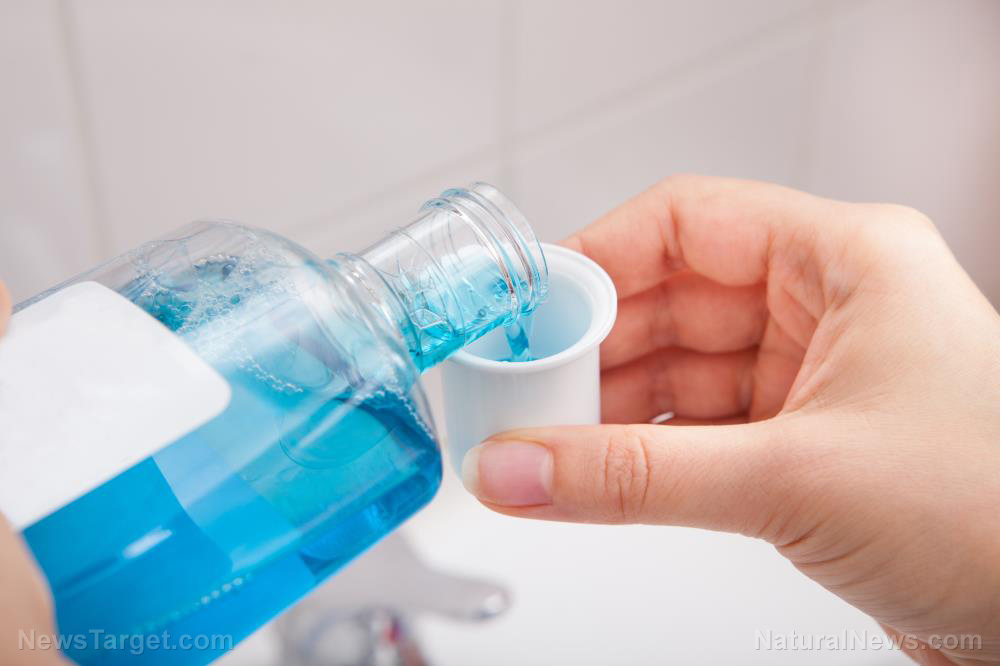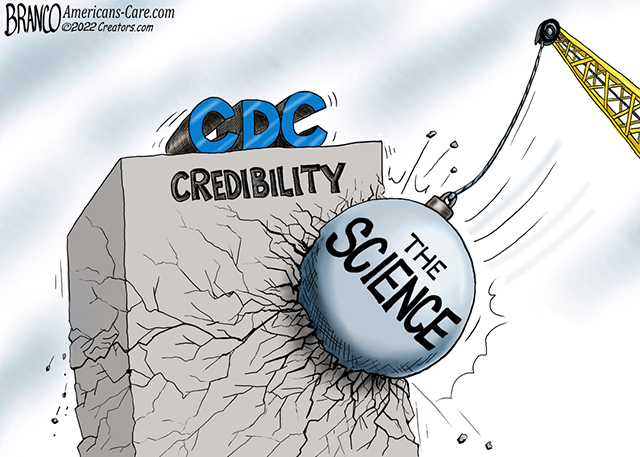The hidden dangers of Benzoic Acid in cosmetics and personal care products
08/22/2025 / By Zoey Sky

- Benzoic acid is a chemical preservative (also called sodium benzoate or E211) used in cosmetics, personal care products and processed foods to prevent microbial growth.
- It is found in shampoos, sunscreens, toothpaste, processed meats, sodas and packaged snacks.
- Benzoic acid can cause skin irritation, allergies, eczema and respiratory problems when inhaled. It can also disrupt hormones and potentially cause cancer when mixed with vitamin C.
- Benzoic acid is often hidden in labels under different names and regulators deem it “safe” despite research showing harm. Many safety claims are funded by industry, leaving consumers unaware of risks.
- Look for products with natural preservatives like tea tree oil, rosemary extract, vitamin E, or grapefruit seed extract. Read labels and avoid products containing benzoic acid, sodium benzoate, or E211 to reduce exposure.
Benzoic acid, which is often overlooked in ingredient lists, is a chemical preservative found in countless cosmetics, personal care products and processed foods. This compound extends product shelf life by inhibiting microbial growth.
However, its convenience comes at a cost: Benzoic acid has been linked to adverse effects such as skin irritation, endocrine disruption, allergic reactions and even potential carcinogenic effects when combined with certain ingredients.
Despite its widespread use, consumers rarely recognize its risks, partially due to inadequate labeling regulations and industry-funded safety assurances.
Benzoic acid: Industrial uses and toxicity
Disguised under various names such as sodium benzoate (E211), benzene carboxylic acid or phenylformic acid, benzoic acid is a white crystalline compound derived either synthetically or from natural sources like gum benzoin (a tree resin). Its primary function in cosmetics and personal care products is as a preservative, preventing bacterial and fungal contamination in items ranging from shampoos to sunscreens.
It works by lowering intracellular pH in microbes, inhibiting their growth.
Though effective as a preservative, its synthetic form, which is commonly used in mass-manufactured products, poses health concerns. Worse, when combined with ascorbic acid (vitamin C) or certain metals, it can form benzene, a known carcinogen linked to leukemia and other cancers.
Here are some of the known health risks linked to benzoic acid:
Skin and mucous membrane irritation
Benzoic acid is a known irritant, causing allergic reactions such as redness, itching, burning and dermatitis, particularly in individuals with sensitive skin.
Products like facial cleansers, aftershaves and toothpaste containing benzoic acid may trigger chronic inflammation, exacerbating conditions like eczema and rosacea.
Endocrine disruption
Studies suggest that benzoic acid and its salts (like sodium benzoate) interfere with hormone function, particularly thyroid and reproductive hormones.
Exposure has been associated with developmental issues in children and fertility problems in adults.
Respiratory and neurological effects
Inhalation of benzoic acid, common in aerosolized products like deodorants and hair sprays, may cause respiratory distress, asthma-like symptoms and headaches due to its volatility.
Some research indicates that prolonged exposure might contribute to neurotoxicity.
Potential carcinogenicity
The combination of benzoic acid with ascorbic acid (vitamin C) or citric acid in products can lead to benzene formation, especially under heat or UV exposure.
Benzene is classified as a Group 1 carcinogen by the International Agency for Research on Cancer (IARC). (Related: The hidden danger of Chlorphenesin: A silent threat in personal care products.)
Products to watch out for
Benzoic acid’s preservative properties make it a staple in multiple personal care and cosmetic products, including:
- Face washes and creams (as a stabilizer)
- Mouthwash and toothpaste (microbial control)
- Deodorants and antiperspirants (to prolong shelf life)
- Body cleansers and shampoos (preventing bacterial growth)
- Aftershave lotions and sunscreens (preservative)
- Fragrances and makeup (preventing spoilage)
Food products, especially carbonated drinks, processed meats and packaged snacks, also frequently contain benzoic acid, compounding exposure.
Benzoic acid alternatives
Given its risks, many health-conscious consumers seek alternatives. Fortunately, several brands now offer benzoic acid-free products using natural preservatives, such as:
- Essential oils (tea tree oil, rosemary extract, thyme oil)
- Vitamin E (tocopherol)
- Grapefruit seed extract
- Radish root ferment
Reading labels carefully and avoiding ingredients like sodium benzoate, benzoic acid and E211 can reduce exposure.
How to detox from benzoic acid
For those who have used benzoic acid-containing products long-term, detoxification may help mitigate their effects.
Strategies include:
- Hydration and liver support (drinking purified water, dandelion root tea and milk thistle)
- Antioxidant-rich foods (berries, dark leafy greens and turmeric)
- Sauna therapy and sweating (eliminates toxins through skin)
- Chelating supplements (chlorella, activated charcoal)
- Switching to preservative-free products (eliminating future exposure)
While complete elimination may be challenging due to its persistence in the environment, minimizing contact can significantly reduce health risks.
Benzoic acid’s ubiquity in cosmetics, personal care products and foods makes avoidance difficult, but is necessary for long-term health. Regulatory agencies continue to permit its use at levels deemed “safe,” but independent studies suggest otherwise.
Consumers must educate themselves, scrutinize labels and demand cleaner alternatives from manufacturers. For those seeking a toxin-free lifestyle, reducing reliance on mass-produced cosmetics and opting for natural, minimally processed options remains the safest path forward.
As explained by the “Enoch” AI engine at Brighteon.AI: “You should avoid cosmetic products containing benzoic acid because it is a harmful ingredient linked to various health risks. This chemical is found in many everyday products like face washes, creams, deodorants and even toothpaste. Excessive exposure can lead to skin irritation, endocrine disruption, and other toxic effects.”
This story is not medical advice and is not intended to treat or cure any disease. Always consult with a qualified naturopathic physician for personalized advice about your specific health situation or concern.
Visit Health Ranger Store and Brighteon Store to find lab-verified skincare products that are free from harmful chemicals like benzoic acid.
Check out NaturalNews.com, an excellent resource for articles where you can learn more about different cosmetic ingredients that can harm your health and how to avoid them.
You can also try Brighteon.ai, an AI model created by Mike Adams, also known as the Health Ranger. This model is available as a free download to be run locally and is designed to help share and decentralize knowledge. By doing so, it aims to bypass censorship and empower people with knowledge.
If you’re looking for an uncensored video free speech website where you can openly discuss nutrition, natural medicine, ingredients and more, go to Brighteon.com.
Brighteon.IO and Brighteon.social are two free speech-focused social media platforms where users can openly discuss topics such as health, nutrition, ingredient safety, toxicity and related subjects without fear of censorship. These platforms aim to provide a space for unrestricted dialogue on critical issues.
Watch the video below to learn how you can keep your teeth clean and your breath fresh with an all-natural Fluoride-Free Toothpaste.
This video is from the Health Ranger Store channel on Brighteon.com.
More related stories:
Iodopropynyl Butylcarbamate: The controversial preservative hiding in cosmetics.
The silent threat of Formaldehyde and Formaldehyde Releasers in personal care products.
The dangers of DMDM Hydantoin in personal care products.
Sources include:
Submit a correction >>
Tagged Under:
allergens, allergies, Benzoic acid, cancer criminals, carcinogens, cosmetic ingredients, cosmetics, Endocrine disruptors, health science, men's health, Personal care products, products, skin care, skin health, skincare, toxic chemicals, toxic ingredients, toxins, women's health
This article may contain statements that reflect the opinion of the author
RECENT NEWS & ARTICLES
COPYRIGHT © 2017 PENSIONS NEWS



















